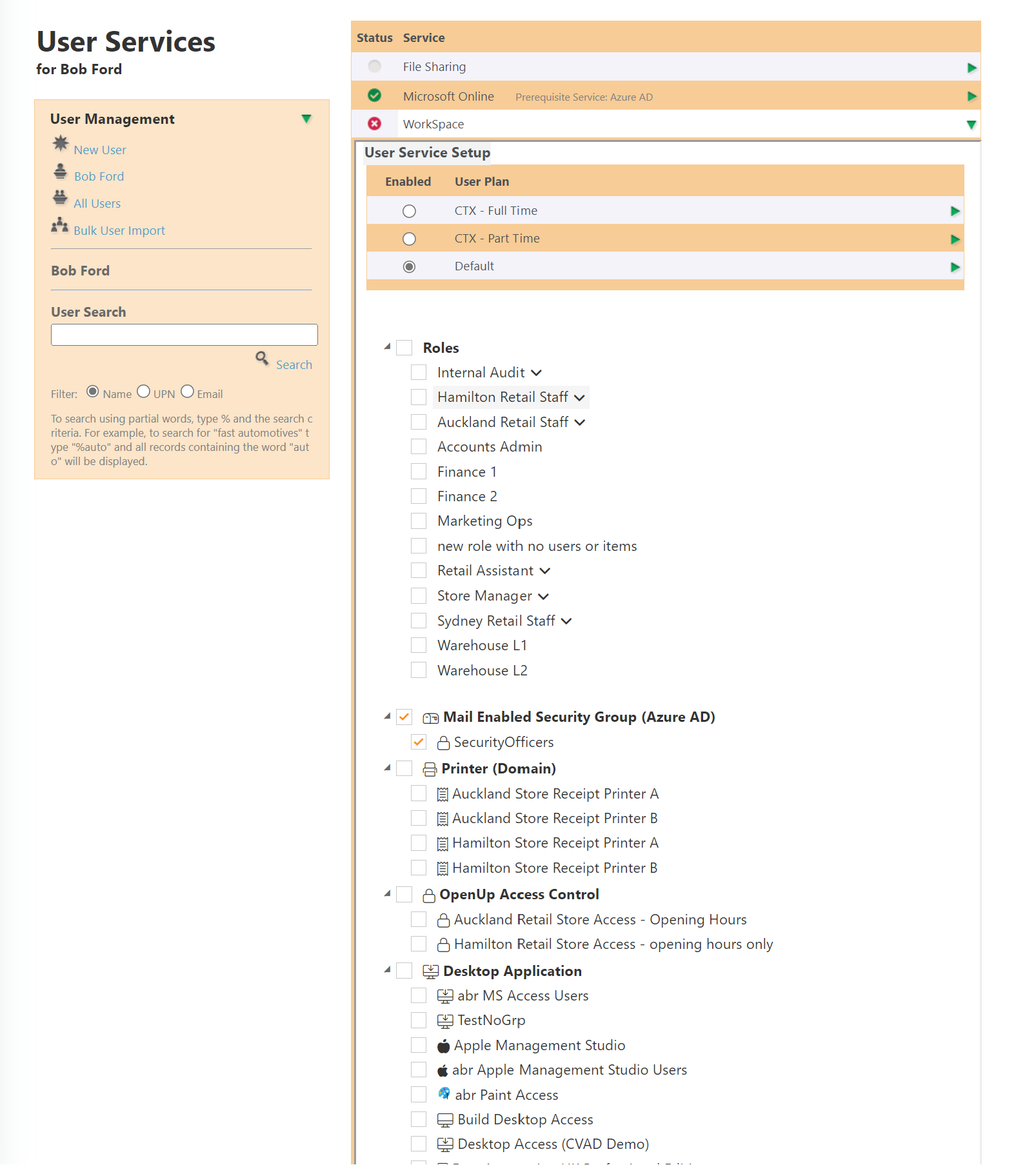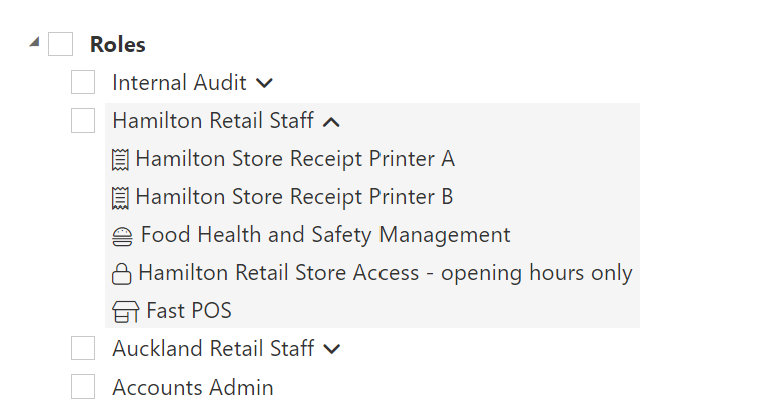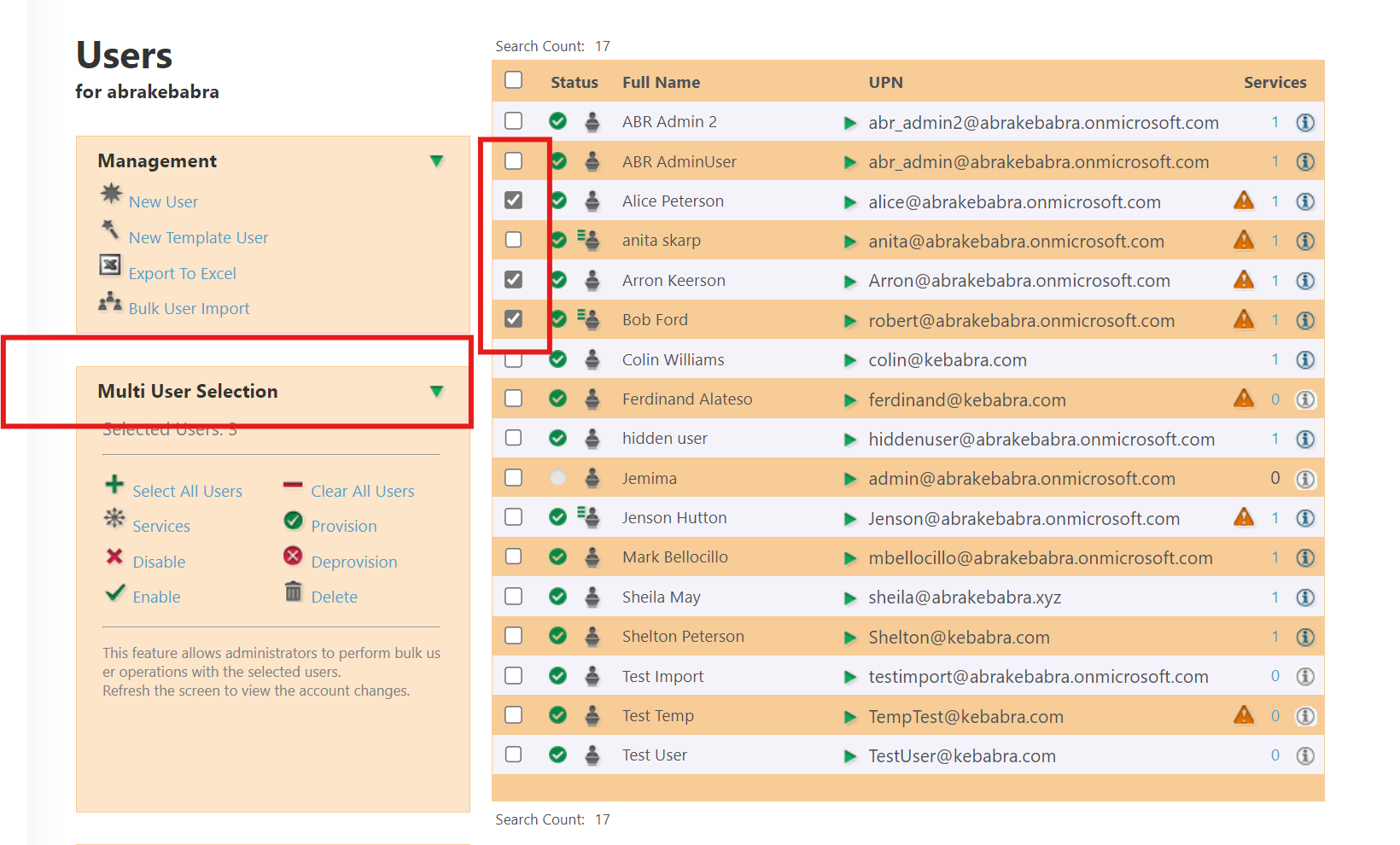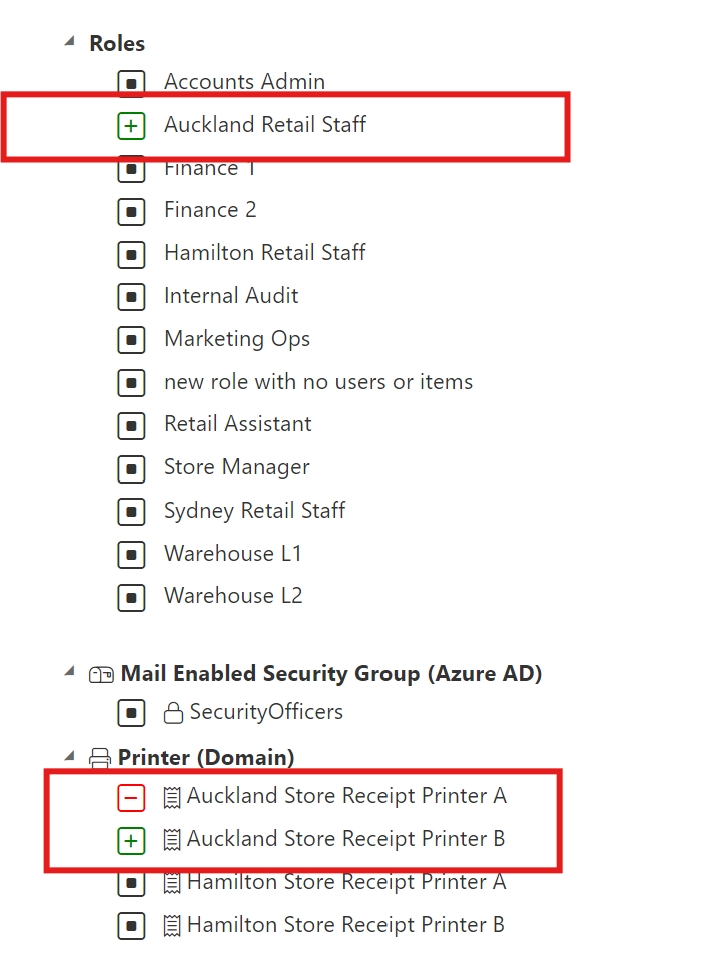User Assignment
Overview
User Assignment allows Workspace Items to be provisioned to users within a Customer.
This guide will also cover the assignment of Workspace Roles. Workspace Roles allow easy configuration of users by grouping items by aspects such as job role or location. They are not essential to the use of Workspace however can be very helpful and save lots of time for customers. Workspace roles and role configuration is explained on the next page: Workspace Roles.
User Provisioning
In order to assign the Workspace Service to a User:
- Navigate to
Users. - Select a User you would like to assign the Workspace Service to.
- Select
Services. - Expand the
WorkspaceService.
The Workspace Service will not be visible for assignment at User level until it has been successfully assigned and provisioned to the Customer of that User.
A list of available Workspace Roles and Items are presented for selection:
Workspace Roles

- Select the items you want to provision to the user and click Provision.
-
Items available for selection at User level are controlled by the Items assigned to the Customer during Customer Assignment.
-
Workspace Items are grouped and listed by Workspace Item Type.
-
Roles are created within each customer, allowing multiple Workspace Items to be assigned in one go. Clicking on a role will show the Workspace Items contained within that Role:

Users can be assigned any number of roles and items. If a user has overlapping assignments, such as the same Workspace Item from multiple roles, Atria ensures the item is only assigned once, with associated automations executing only once.
Workspace Items that are in Entra ID will be hidden from the User until the Microsoft Online Service is provisioned to the User.
Un-assigning Workspace from a User
De-Provisioning, or un-assigning the Workspace Service, is the reversal of the assignment process. It will remove the user from all assigned Workspace Items.
As the user is removed from each item, any configured automation scripts are executed.
De-provisioning will remove access to applications and resources, it can be a destructive process. Double check you have the right user and you want the service to be deleted.
Multi-User Assignment
Multi-user assignment allows the same set of assignments to be applied to multiple Users. This is a powerful feature that makes it simple to make one or more Workspace Item assignment changes to a set of users.
- Navigate to the Users Page
- Navigate to
Users - Enable "Multi User" and select the Users you want to make changes to
Multi-User Assignment

- Select the Users you would like to assign the Workspace Service to
- Select
Serviceson the left hand side. - Expand the
WorkspaceService
The standard list of Roles and Workspace Items available is presented, however the checkbox is replaced with a "Tri-state" check box.
| State | Description |
|---|---|
| Black Icon | This is the default state, this means - "Do not change the users current status for this item" - i.e. if they have the item, leave the user with the item. If they don't have it, then leave it as is. |
| Red Remove | This means, remove from the user - if they already have the item. |
| Green Add | This means, add to the user - if they don't already have the item. |
Multi-User Assignment

Reset all selected user assignments
This checkbox, when selected, changes the behavior of the bulk provisioning interface. It will ensure that all selected users, after processing has finished, will only have the items marked with the Green Plus.
This feature needs to be used with extreme care

The "Reset all selected user assignments to those marked as "Add" will do the following:
- Removal of Items: Any items that are not marked as Add, if assigned to any of the selected users, will be removed.
- Addition of Items Any items marked as Add will be added to all selected users.
If say for example, you bulk select 1000 users, check this box and do not select anything - it will remove all items from all selected users.
Summary
Congrats! You have successfully deployed and setup Workspace within Atria. Workspace supports further features such as Roles, Automation, and Importing Items from Active Directory Groups. The further docs in this section will describe and demonstrate these further features.